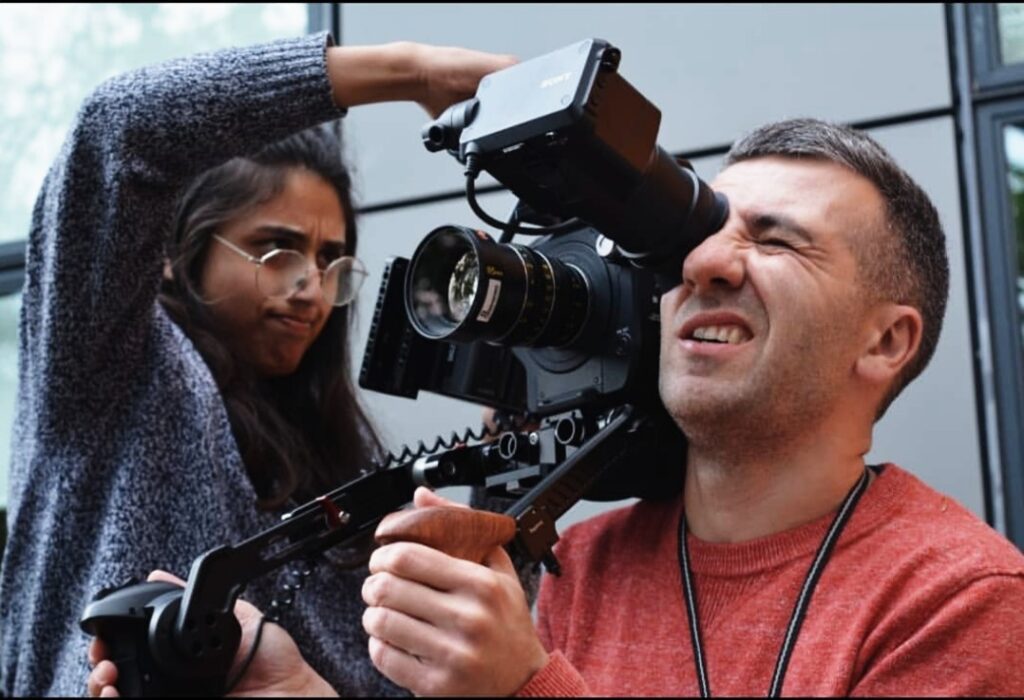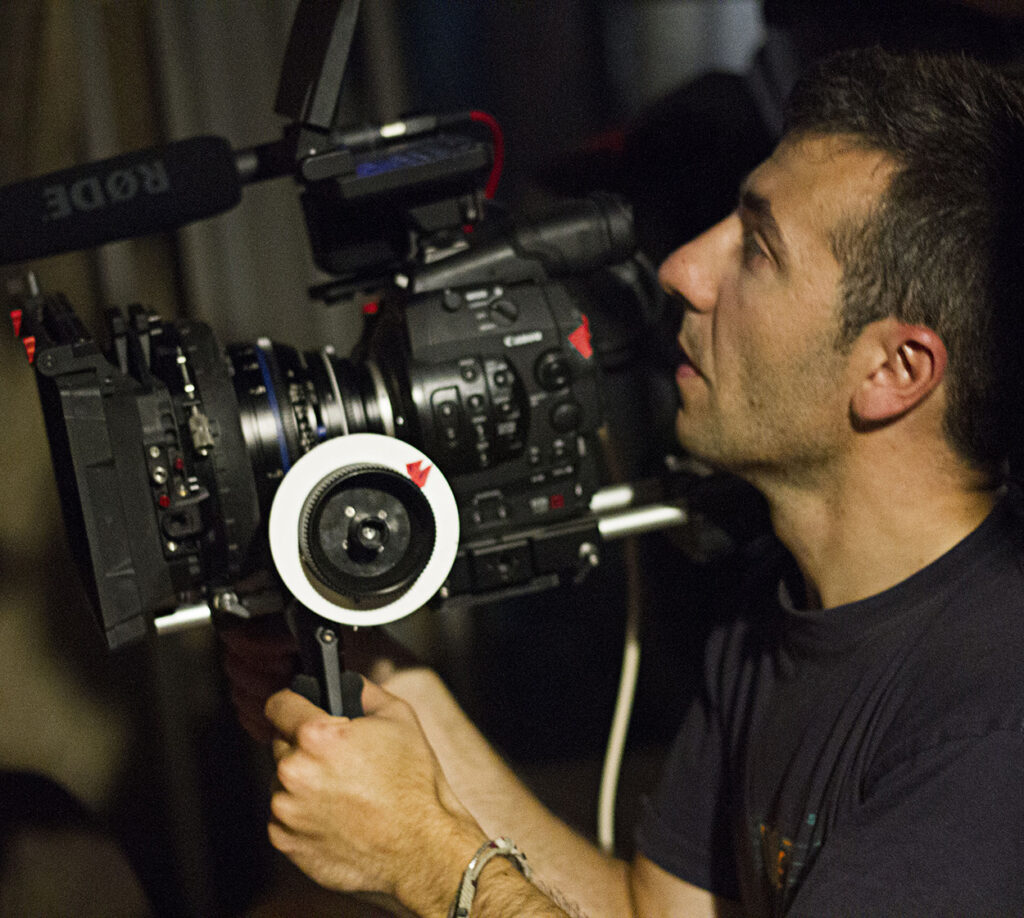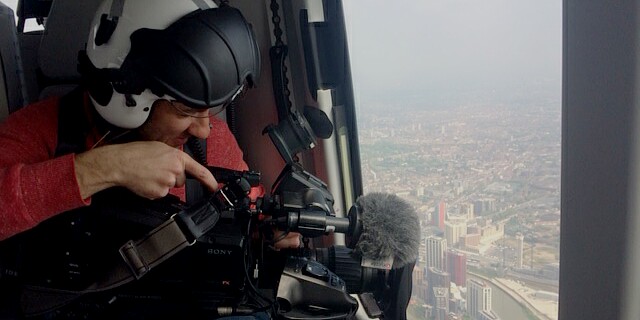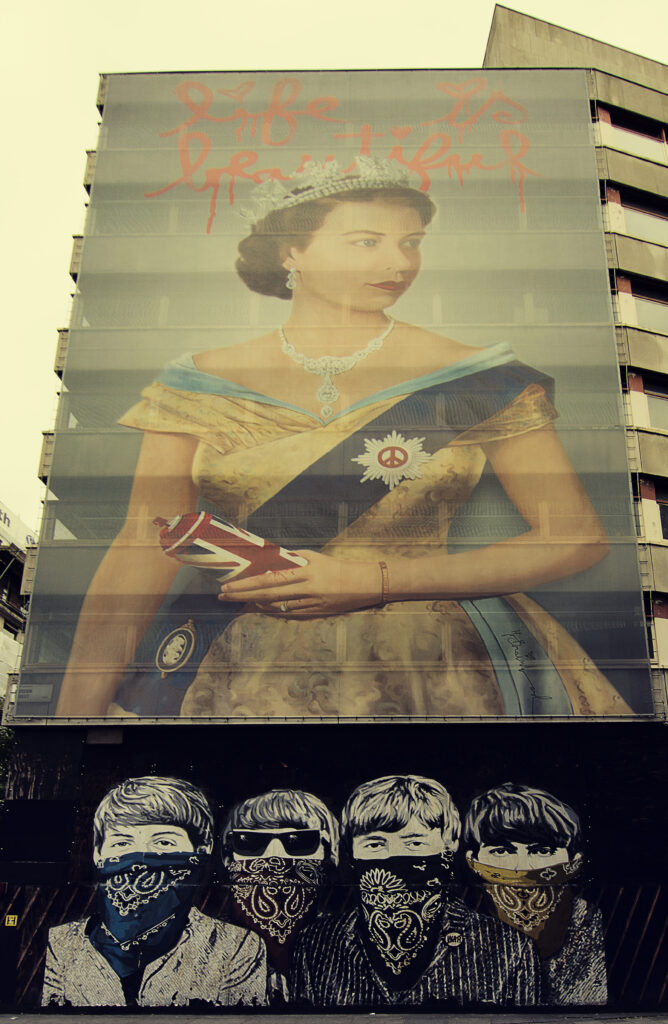Work and study in UK: Italians in post-Brexit London
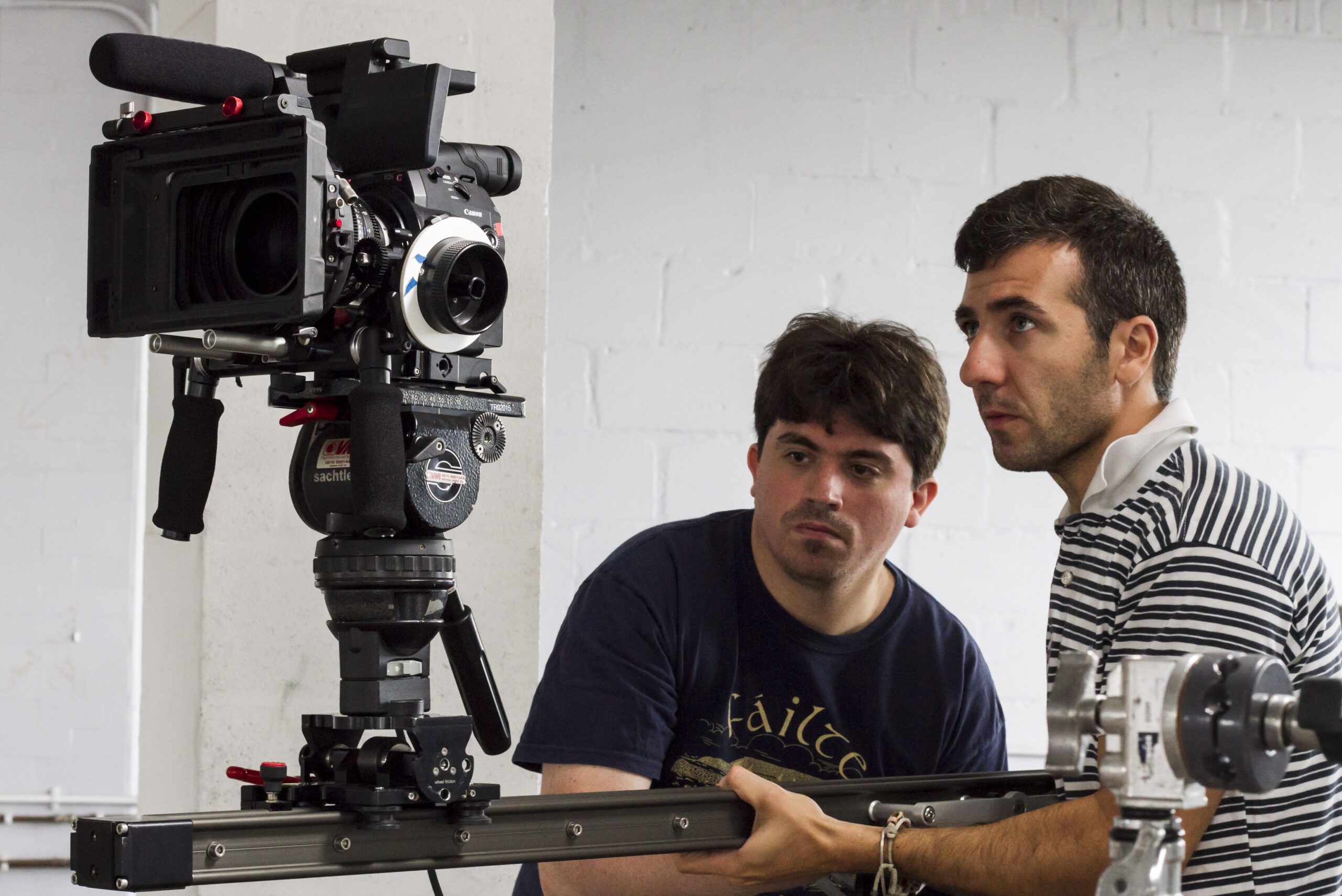
After living in London I understood that two English citizens make a country, but 57 millions of Italians don’t.
Claudio Ranieri
The UK officially left the EU on January 31st, 2020. This de facto marked the end of free movement for those who want to venture to the UK in search of a job or to study.
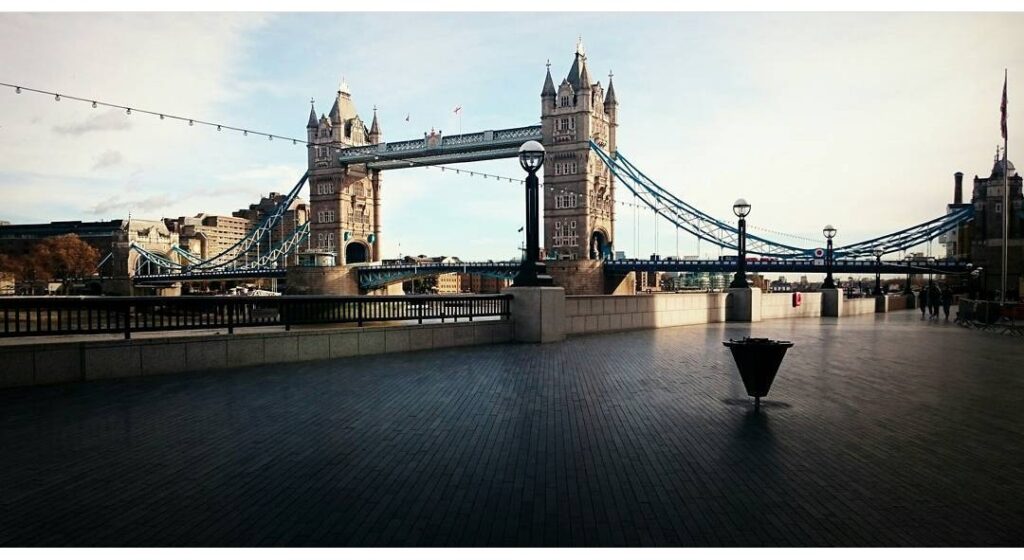
Nine or ten years ago times were very different. When Cristian Mantio and Luca Roveri left Italy to find fortune with a suitcase full of dreams and hopes.
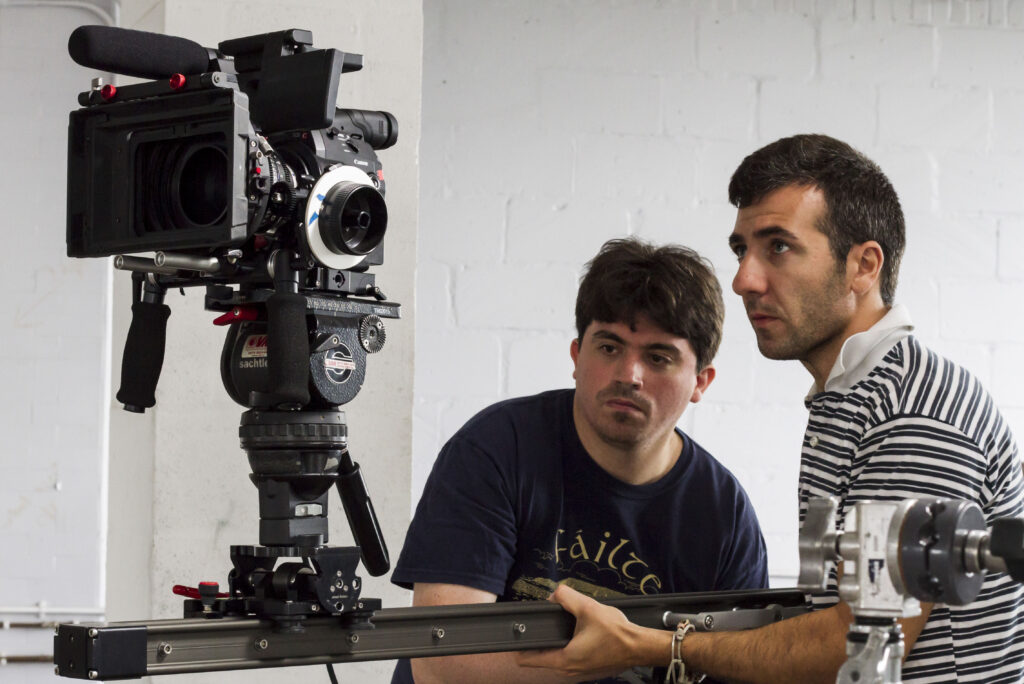
These two shy boys, friends of mine, are now men.
They share a common story with all those who have to migrate to fulfil their dreams of professional growth. All those who found a closed door in Italy and decided to gamble everything leaving their loved ones and their country behind.
I know very well that feeling. That knot in your stomach, that burden on your shoulder mixed with melancholy, that sensation of uncertainty and euphoria at the same time. It’s the desire of running faster than anyone else with your shaking legs to get ahead. Just a few can make it.
Cristian and Luca are two among those who made their way, and now, in London, they are part of the biggest Italian community worldwide. A community swollen in the last two decades and that now could dwindle because of the new post-Brexit rules and regulations.
Cristian Mantio and his dreams of glory
If I close my eyes I can still hear his voice while we walk through the roads of the Foro Italico in Rome: he has the camera on his shoulder and I hold the microphone. It’s the 2009 Swimming World Championships and we daydream while we shoot just another stand-up.
Cristian dreams big and has skills and talent to become what he wants to be: Italy is not enough anymore and his destiny awaits him abroad. Now he is a lighting cameraman at the BBC and Director of Photography on various projects.
I was born in a small town in Liguria in North-Western Italy. After graduating in History and Philosophy at the University of Genoa I moved to Rome to attend a Master in Scriptwriting for Cinema and TV. The years in Rome were important for my formation and to find friendships which are still alive today.
Shortly after the Master I started a job as a producer/director in Sky, and there I discovered my passion for camera shooting. So I attended a course in Photography to learn the basics and started to work as a cameraman. Leaving Italy was already something I wanted to do but I had to find a job where the language would not constitute a barrier in order to do it. Images, as music, speak a universal language.
After a few years I got exhausted by the Roman work system and I left Italy. I spent three months in New York where I mainly focused on improving my English. New York radically changed my mind set and made me understand at least two things: first, I could not possibly live in Italy anymore, and then that if I wanted to do the job I love London was one of the few European cities offering opportunities.
When I arrived here I fought hard to keep doing my job. I remember that after an year spent among occasional jobs and with my savings running out, at the end of 2011 I gave myself one last month to find a proper job before leaving London for good.
On January 10th 2012 I decided to send my last CV to a company I had found on the internet. I switched off my laptop and thought I had had enough. I was going to buy my return ticket the day after: I had lost my bet with London and it made no sense to further insist. After twenty minutes I received a phone call: it was the manager of that company, he wanted to meet me. A few days later I started to work and my new life began.
Nowadays I still wonder where I would be now without that email.
To be honest what I remember most of that period is… the tears!
After a few years, almost by chance, I replied to a BBC advert: I sent my CV, I did a practical test and a couple of interviews. They offered me a six months contract. I remember that I went back to my manager to thank him for all he had done for me, and I told him, with a heavy heart, that I wanted to take that chance. As a true Englishman he just told me:“ You have done well here, I can’t stop you. You have to do what you have to do!”. So I left that permanent position for a few months contract at the BBC.
After six years I am still here, working as a cameraman for BBC London. I’ve also become a Union representative, I stand up for the rights of the BBC workers.
Thanks to my job I experienced extraordinary stories and met great people over the years and, above all, I understood better the complexities of this incredible metropolis. But it hasn’t always been easy: the terror attacks in 2017, the Grenfell Tower tragedy (I was under the tower while it was burning), and the Covid during the last year.
In addition to my main BBC job I have been working as Director of Photography on different projects. I shot more than ten short movies (two of these can be seen on Amazon Prime UK & USA), and a feature that, so far, has been released in seven countries.
Finally, I teach Film and TV Production in different Universities. Let’s just say that I know how to keep myself busy.
I have changed a lot over these years, and I became a father too.
After all this time I can say that, somehow, I won that bet with London.
Can you describe your first days in London?
In one word: overwhelming. The first days in a new town are always exciting, a mix of confusion, frenzy and new incitements. You need to learn an entirely new system in one of the biggest and most complex cities in the world. Even the simplest tasks in life such as looking for a house or opening a bank account become challenges. You could even make stories for your friends out of them; but mainly they take a long time. You’d love to live the city, but at the end of most days you feel exhausted. When I came here I didn’t know almost anybody so I had to learn all this the hard way.
I had been in London before but always for short periods of time. It is a completely different story when you come to start your life from scratch and with no return ticket.
I’m not going to lie, my first year was extremely difficult, sometimes exhausting. I arrived with my partner at the end of 2010 in the middle of the economic crisis. They were very peculiar times, somehow as now even though the current crisis is due to the Covid outbreak rather than to an economic situation.
After the first month of adaptation the days started to feel much longer: entire days spent sending CVs, filling out working applications, knocking on closed doors. The initial frenzy made way to the fear of failing. And the temptation to give up and go back home was huge.
Sun and rain, snow and storm. The fear of failing is always common to those who leave the comfort of their home to go and explore the world and to find fortune abroad, either after necessity or spirit of adventure.
For a long time Italian people in London lived in Little Italy. They were identified mainly as hospitality and bar workers due to the congenital passion for cooking, for coffee, pasta and pizza. Today the Italians are many more and spread around the British capital. They work everywhere: in hospitals, courthouses, schools, banks, big firms, start-ups. And yet finding a job is still a hard endeavour.
First of all, there is the language. Learning English at school does not prepare you for the challenges of working and interacting in a town where there are so many accents, especially if your job requires a specific vocabulary. Then it is important to understand that here the rules are very different compared to those in Italy: it seems easy to learn how to write a CV and a Cover Letter but it is not.
After all this, if you are lucky, you get to the interview stage: there are specific rules for this too. There are people whose work is to teach how to face it. Competition is very big and you need to stand out from the crowd.
And obviously there is London and all the problems that a chaotic city like this can present.
How do English behave towards Italians?
The first thing to say is that London is a microcosm in the English landscape. This city is founded on the migrants. Many of the English people I met were not born here but they moved to London to work (from cities such as Manchester, Leeds, Norwich…). And then there are those who are born here but have immigrant parents. They are Londoners but with a strong cultural identity belonging to other countries.
I am not saying that I’ve never come across racism but generally Londoners are open-minded. They are used to Italians as they are to Europeans and other nationalities.
A strong message was sent with the Brexit referendum: London was one of the regions (alongside Scotland and Northern Ireland) where the vote to remain in the EU had the majority (averaging 60%, with peaks of 70-75%). Europeans are part of this city’s lifeblood, and Londoners know it well.
Probably I can say that Italians are still appreciated for their creativity and flexibility of mind. Generally we adapt to new situations better than others, and here this is seen as an upside, especially in a work environment.
How the labour market works in London? What are the differences from the Italian one?
London can offer plenty of opportunities for a career, but things started to be more difficult in recent years. Once migrants used to come to England to find fortune, and many succeeded. Now you cannot take it for granted anymore. Over the years I met many young graduated and/or experienced Italian guys who gave up after being in some modest job in a café.
Differences between here and Italy? The respect. Here if you know your stuff you are rewarded. It’s a very flexible market but there is always a huge respect for those who work.
When I left Italy I was tired of having to chase payments that I was overdue. I was paid after 60, 90, 180 days. And finally when I was paid it felt like they were doing me a favour. Here in many sectors, as in the hospitality, payments are weekly. Now, when I do some occasional job outside the BBC, the same people I work for get in touch to receive the invoice: and after a few hours the money is in my account.
Obviously it’s not always so easy, but the law here is on your side at least. If an employer does not pay can be brought to court, and trials are rather quick. But, above all, an employer who does not pay loses credibility and will struggle to hire again.
Then the way workers are seen is very different. I can tell a short story about this: when I was still living in Italy and working for Sky one day I went to the cameramen manager. I wanted to learn that job and offered myself as an assistant in my free days. I was already working there, it could have been quite easy to arrange. But I was told that I could never be a cameraman as I had not studied to be one and did not know anything about it. End of story. Period.
When I started to work in London my manager told me during the first days: “I know that now you feel confused and think you don’t know anything. I don’t care if you make a mistake, I care that you try. What I cannot stand is not the mistakes but when people don’t even try”.
Here you are seen as an investment for the future. In Italy you are not.
What do you miss the most about Italy?
It’s hard to say what I miss the most about my country, as it’s hard to quantify loved ones, culture and lifestyle. There are many, too many, things I miss. Even small things. I miss riding my bike on the street along the Tiber in Rome in the evening in October, drinking an espresso on the beach in my Liguria, calling a friend after work to go for a drink in the city centre: in London you have to arrange a meeting at least a week before, and sometimes you can’t make it happen either. There is not a week that I don’t think of going back; but as soon as I open an Italian newspaper, or as soon as I hear a story from a friend or a former colleague, I change my mind again.
When someone leaves a country, before departing all things take an extraordinary value in the memory and give us an anticipation of distance and nostalgia
corrado alvaro
What do you like about your life in England?
I like the space I managed to secure in this society. My family, my small world. I like being a professional and being regarded as such, living in a respectable and honest way. I like teaching to my students, teaching them what I learned through my mistakes.
And I like when my four year old daughter corrects my English accent: she’s a strict teacher.
Would you make this choice again?
Probably I would but at a different age. If I had come here in my twenties instead of my thirties I would have faced all the challenges with the energy and the lightheartedness of that age. Maybe this would have helped me facing better the initial difficulties.
How life changes for an Italian after Brexit?
For what concerns me it did not change much. Three years ago, after the referendum – and mainly after the birth of my daughter – I decided to take the British citizenship. Nobody knew what could happen and I did not want to wait until the last minute.
In the last six months at least six people I know, including my partner, took the citizenship. For the people living and working here since many years it has become almost a necessity. But it is mainly a psychological need. You feel safer knowing to hold an English passport in your drawer in these crazy times.
Due to my job I was lucky – and unlucky – enough to follow the referendum closely and the four year long process to the deal. The only clear thing is that people are confused.
Surely there is a new deal and new rules but it is still difficult to figure out the outcome of Brexit, as we got out of the EU last December 31st only. And there is also the current situation, with Covid making things more complicated.
What kind of advice can you give to a youngster who wants to move to London to work or study?
First of all the new rules should be thoroughly checked: the BBC website has many articles with links to the English government website.
Since December 31st it is not so easy to come here anymore. It is unthinkable today to make the same choice I did.
If you really think that London is the right place to be, my main advice is to write a good CV and a good Cover Letter and to start sending emails and contacting companies. Today is much easier thanks to Zoom, Skype and internet; don’t wait until you are already here.
London is a difficult city. Many people coming here for a job, even with a career under way, sooner or later end up moving away. It will likely happen to me too in the future.
But London never stops. It changes continuously. And this city will always be in need of capable Europeans willing to give their contribution to these changes.
Luca Roveri: all of a sudden, London
From Rome to London. From a Roman local TV to a big British network. When we were seated side by side editing one of our programmes I could not imagine that that good and down to earth boy with a passion for rugby would literally take flight.
It was June 30th 2012, the London Olympic Games were less than a month away.
Everything starts by chance over a spring day. I have to make some colour photocopies. The copy shop manager tells me it’s going to take a while, so I decide to sit down in front of one of the available PCs and to randomly go on Facebook. Suddenly I see a messenger window popping-up and Cristian, an old friend of mine, saying hi: I know that he lives in London and while chatting with him I discover he has finally found a good job. Even more suddenly he tells me that, due to the approaching of the Olympic Games, the company is looking for people. I tell him that I’ll have a think about it, but in my mind I know already that being 33 years old it’s a “now or never” situation.
After the exchange of a few emails, the regeneration of my CV, a week of trial in London (which I covered up as holiday at work), a last minute booked flight and a Sunday spent viewing four rooms, I find myself on a Monday morning working in a language that until then I had only heard coming out of my stereo.
I spent five years working at Westminster Live Studios improving my knowledge and learning technologies in a way I could never have imagined before, and covering almost every possible role an audio-video technician can.
I moved to the BBC three years ago now: once again it was a former colleague from Spain to let me know about the job post, but I was already looking around to see what else the British TV industry could offer. I went to the interview with not many pretensions, after studying all the (blessed) photocopies the Studio had given me at the very beginning to instil into me the knowledge of different signals, connectors, etc. My intention was just to break the ice and start looking for other jobs, instead I now find myself to be called engineer when I’ve never studied engineering. I am an Operations Engineer in the MCR: we push a lot of buttons, talk to the most various departments of the BBC, and seemingly we take care of the fact that the BBC is available to all the audiences who want to tune in at any given time around the world (I’d rather not remind myself of the level of responsibility).
When they ask me how it is going I always answer that I cannot complain. Life takes these turns sometimes.
How has it been to face this work and life experience when you are far from home and your family?
It is weird, different…It’s hard to find the words to describe it because sometimes I am still not fully aware of the fact that I live here. Time in London goes by at great speed, and even if you get used to the London life it always feels like yesterday that you were saying goodbye to your mum at the airport before taking a one-way flight.
I miss my family and my friends the most, to be honest I don’t miss Rome much. And yet sometimes a few moments, odours, cultural affinities wrap you around and take you far away back (especially after a few pints at the pub…).
Nobody is immune from nostalgia, whichever shape this takes.
What was more difficult at the beginning?
To be entirely honest I must say that I did not experience the traumatic approach that other migrants go through after crossing the border without certainties.
I was helped by a friend I had met years before in a local TV in Rome called Retesole to find a new job before arriving: knowing that I would be paid at the end of the month at the very beginning has been of great help. I never had to count the coins in my pocket and how many days were left until the end of the month, and this is extremely helpful.
Having said that the impact with a new town and a new lifestyle was heavy: many different daily life situations suddenly change, from the way a shop is made to how to find a doctor. Language was my main concern at the beginning, although I could dabble a bit of English. But you have no choice but trying to understand whoever is talking to you, either your muttering manager or a stranger at the pub swallowing his words; then after months spent listening to countless unintelligible litanies, at a certain point you figure out you can speak better than you think.
After almost nine years since the day I arrived, I can say that certain moments and situations may have been more difficult than what I could perceive at the time through my natural nonchalance: but there’s not much more to do than rolling up your sleeves and trying to make yourself understood as much as you can.
How much is London expensive for someone willing to move? And where is it more convenient to find accommodation?
It is expensive, everything (except the beer) is more expensive: I’m comparing with Rome, I can’t even imagine the difference with the rest of Italy. Especially if you try to carry on a healthy lifestyle, not giving yourself in to obesity and cholesterol, you can end up paying a hefty bill. Rent is definitely the sore point: housing in London costs on average twice as much as in Rome.
London is a city where rich and poor neighbourhoods intertwine: it’s easy to find streets with council houses not far from the villas where a CEO could live; and most of the historically less expensive boroughs are now gentrified. It is also worth considering the way London transport works according to the different zones and tariffs: if you find a job in the centre, it’s not much convenient to live far away, as what you save on the rent will end up being spent on the travel… Generally speaking North, East and South-East are the areas where it could be easier to find a first home, but it takes a lot of patience while browsing over the specialised sites.
It can be a big step from the warm Roman spirit to the cold behaviour of the Londoners, but as in most of these cases some myths must be debunked.
Londoners are as courteous and individualist towards Italians as they are towards any other people. London is not England, Londoners have the habit of living together with more than 200 other nationalities, and this is something very hard to find anywhere else (definitely not in Rome); of course there are idiots here too, but I must say that I haven’t yet experienced any annoying situation.
An old saying is that Southerners and Londoners are generally less friendly than Northerners and other Anglophones. And it’s true that you can spend some time every day for a few months in the same pub until a Londoner finally decides to say a few words to you; while it could take a Scot or an Irish a couple of minutes to do the same: they generally start with a question sounding like “You’ve got an accent, where are you from?”
It’s not a mystery that Italians miss their food when abroad. Is it true?
I came to London a first time at the end of 1998 for three months, and I must say that I find food education much improved now: it’s more difficult to come across overcooked pasta, and English seem to have generally understood that certain things should not be done with coffee; also many people pay more attention to food in their everyday life, contrary to the English norm seeing it as a mere mean to survive: one of the joys of immigration. Having said that there is still quite a cultural difference: I can still hear people complaining of food being too tasty (I’ve never understood what this means), salt is seen as a seasoning for the upper-class, and don’t get me started with the education needed for the use of onion and garlic.
Luckily in London you can find almost everything you need in the food shops, so more or less you can manage to eat as you would in Italy if you really want; also the UK has absorbed over the decades the traditions of the rest of the old Empire, so it’s possible to experiment with those.
Gluttons will find no issues as at least a quarter of the area of any shop is dedicated to sweets, crisps, chocolates and biscuits.
One of the effects of Brexit is the end in the UK of the Erasmus project, which previously allowed many students to have an experience in a British college. This affects British students as well as their European counterparts who will have to request a visa to study in the UK and to pay the very high tuition costs.
The end of the Erasmus project is a tragedy for the youth. I believe that academic relationships will be much more complicated from now on too. But the situation could change in a few years: I guess that the UK-EU relationship will end up being as flexible as the one between EU and USA.
The most ironic thing about Brexit is that it created a European sentiment that had never been felt here before, mainly among students: whether it will stay or it will go it’s something we will discover.
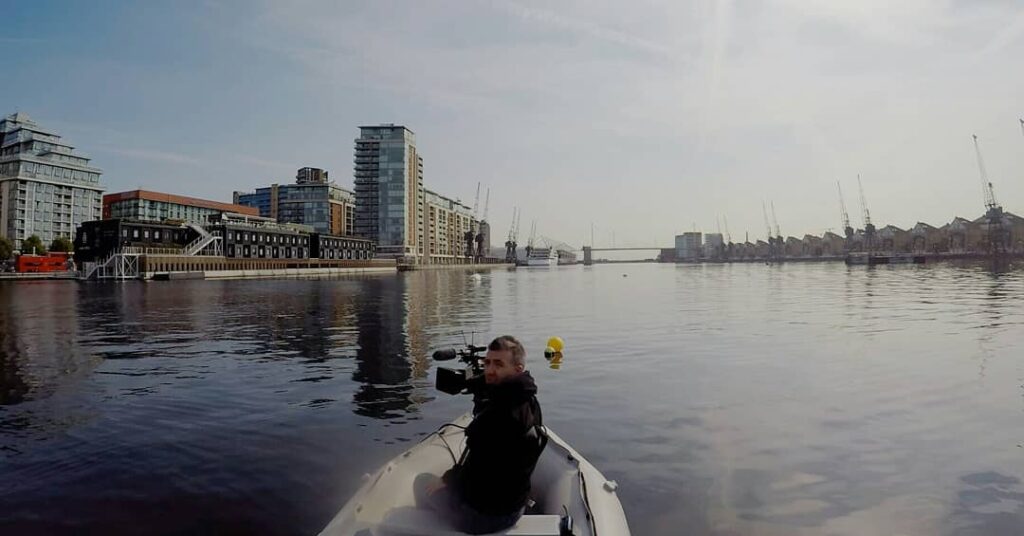
The stories of Cristian and Luca tell us how to nurture our dreams while keeping on believing in a better future, especially a better professional future.
Surely it’s more difficult now for an Italian to make a life in London. The suitcase got heavier. But the hopes and dreams which fed and still feed many of our countrymen who migrated are a legacy to hold on to. And not even Brexit can wipe these hopes and dreams away.
PS: Special thanks to Luca Roveri and Cristian Mantio
SEGUI DISTANTI MA UNITE! Se ti è piaciuto l’articolo lascia qui di seguito il tuo commento e partecipa al nostro sondaggio perché La tua opinione conta! E soprattutto non dimenticarti di seguire le nostre pagine social Facebook, Twitter e Instagram! Ti aspettiamo con un ricco calendario ogni giorno pensato per voi!

